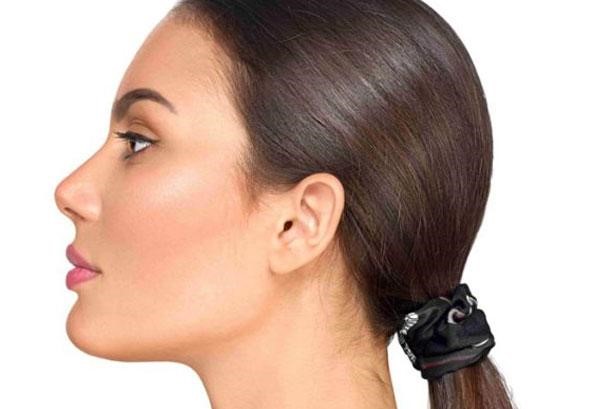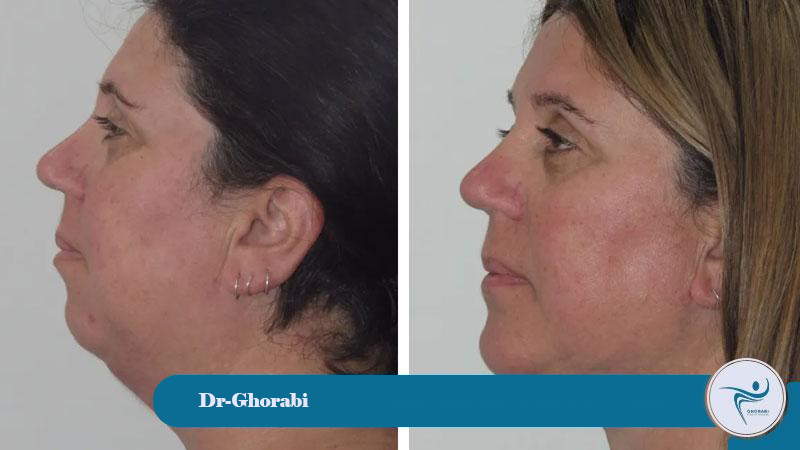Chin surgery, or genioplasty, is one of the important cosmetic procedures in the field of facial surgery, performed to correct the shape and proportion of the chin. This surgery not only helps improve the appearance of the chin but also has a significant impact on the overall facial harmony.
What is genioplasty surgery?
Genioplasty (also known as chin surgery) is a procedure designed to correct the shape, size, and position of the chin. The goal of genioplasty surgery is to create better balance and harmony between the chin and other facial features. In most cases, individuals with a receding, small, large, or crooked chin can achieve their desired and proportionate appearance using methods such as: Chin filler injections This procedure chin surgery can be performed in two main ways:
- Surgery for a small or receding chin: In this case, genioplasty uses a prosthesis or repositioning of the chin bone to increase the volume and projection of the chin.
- Surgery for a large or prominent chin: In this type, a portion of the chin bone is removed or reshaped to make the chin smaller and more proportionate.
Using various chin surgery techniques, it is possible to correct problems such as long chin surgery, crooked chin surgery, and receding chin surgery.
Types of Chin Surgery (Genioplasty)
Genioplasty surgery involves several methods, the selection of which depends on the type of chin problem and the patient’s expectations. We will explain the most common methods of this surgery below.
Who are suitable candidates for genioplasty?
All individuals dissatisfied with the appearance of their chin and who have problems such as a small, receding, large, or asymmetrical chin are considered suitable candidates for genioplasty. However, suitable candidates must meet the following conditions:
- Good general health and the absence of chronic diseases that would prevent surgery.
- Having realistic expectations of the surgical results.
- Absence of severe dental or jaw problems requiring jaw surgery (in which case jaw surgery is recommended).
- Individuals over 18 years of age whose bone growth is complete.
- Those who wish to improve their facial shape and increase their self-confidence.
Individuals who undergo chin surgery as part of facial surgery or Double chin surgery will usually have satisfactory results.
The difference between genioplasty and jaw surgery (orthognathic surgery)
One of the important questions in the field of jaw and chin surgeries is the difference between genioplasty and jaw surgery. Jaw surgery, or orthognathic surgery, is performed to correct skeletal and functional problems of the upper and lower jaw. This surgery is usually for people who have problems such as malocclusion, forward or backward positioning of the jaws, or speech and chewing difficulties. Jaw surgery may be combined with neck lift surgery .
In contrast, genioplasty is more focused on the aesthetic aspect and the correction of the chin shape, concentrating on improving the appearance of the chin. In cases where both functional and aesthetic problems exist simultaneously, both surgeries may be performed in combination.
So, if the goal is solely to improve the appearance of the chin, genioplasty would be the best choice, but in the case of more complex jaw problems, orthognathic surgery becomes necessary.
Stages of Genioplasty surgery
Genioplasty surgery is a specialized procedure performed by top surgeons such as Dr. Gholamhossein Ghorabi. The main stages of this surgery include:
- Initially, the patient undergoes a thorough consultation and examination. At this stage, radiological imaging and 3D imaging of the chin are performed, and the best treatment plan is selected.
- On the day of surgery, the patient is placed under general or local anesthesia.
- The surgeon makes incisions inside the mouth or under the chin to provide access to the chin bone.
- In augmentation surgery, the chin implant is carefully placed in position.
- In reduction surgery, a portion of the bone is removed or the position of the chin is altered.
- Finally, the incisions are sutured, and appropriate dressings are applied.
The recovery period for chin surgery is usually between one and two weeks, and swelling and bruising gradually subside during this time.
Possible disadvantages and side effects of genioplasty
Like any other surgery, genioplasty may have complications, and understanding them is important:
- Swelling and bruising in the surgical area, which is normal but usually improves within a few weeks.
- Infection, which may occur if hygiene precautions are not followed.
- Numbness or reduced sensitivity in the chin area, which is usually temporary.
- Displacement or mismatch [of the chin implant] Chin prosthesis In cases of use.
- Possible formation of scars in external incisions.
- Dissatisfaction with the final result and the need for revision surgery.
By choosing the best surgeon and following post-operative care, risks can be significantly reduced.
Important points and precautions before genioplasty surgery
Before chin surgery, several important points must be observed that directly affect the quality and safety of the surgery:
- Undergoing complete medical examinations and necessary tests.
- Informing the surgeon precisely about medical history, medications taken, and allergies.
- Discontinuing the use of anticoagulant drugs such as aspirin at least one week before surgery.
- Avoiding smoking and alcohol consumption for two weeks prior.
- Choosing an experienced and specialized doctor like Dr. Gholamhossein Ghorabi, who has a successful history in genioplasty surgery.
- Setting realistic expectations and having a complete consultation before the surgery.
These measures help prevent complications and increase satisfaction with the surgery.
Post-operative care for genioplasty
Post-operative care after genioplasty plays a crucial role in faster recovery and reduced complications. The most important post-operative care for genioplasty is as follows:
- Timely and complete consumption of prescribed medications.
- Use of cold compresses for the first 48 hours to reduce swelling.
- Avoiding pressure or massage on the surgical area.
- Maintaining oral hygiene with gentle and proper rinsing.
- Avoiding hard or sticky foods until complete recovery.
- Regular follow-up visits with the doctor to monitor the healing process.
- Avoiding strenuous activities and exercise until approved by the doctor.
- Use of a chin implant until specified, if necessary.
Careful adherence to these care instructions will significantly contribute to reducing the chin surgery recovery period.
genioplasty surgery; an effective solution for correcting chin shape.
Genioplasty is one of the best cosmetic procedures for correcting defects and imbalances in the chin, significantly impacting the overall balance and beauty of the face. This procedure, using various methods tailored to each individual’s needs, can naturally and harmoniously reshape small, receding, large, or crooked chins. Choosing an experienced and specialized surgeon, strictly adhering to pre- and post-operative care, and having realistic expectations are crucial factors for the success of the surgery.
If you are seeking the best results and a reliable experience in chin cosmetic surgery, we recommend you contact Dr. Gholamhossein Ghorabi for a consultation and appointment, the best cosmetic surgeon in Tehran, to receive expert guidance and take a confident step on your beauty journey.
About DR. Ghorabi
Get to know/Meet Dr. Ghorabi.
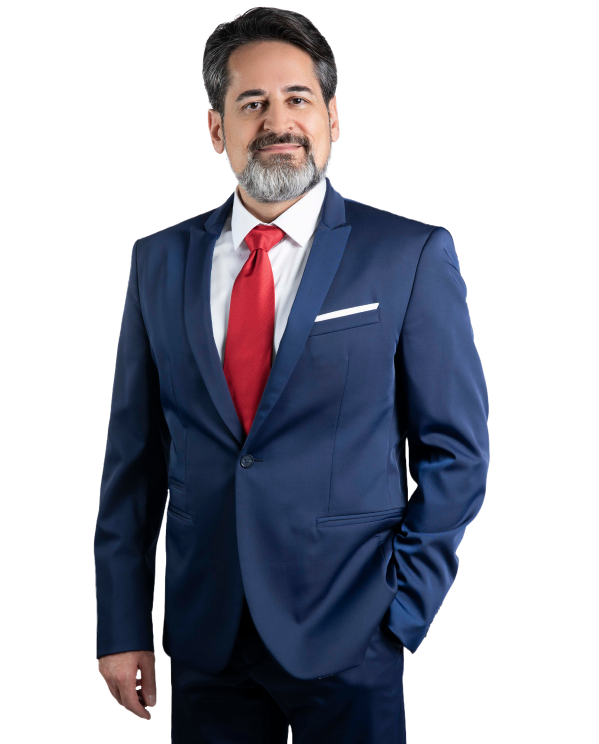
About DR. Ghorabi
Get to know/Meet Dr. Ghorabi.
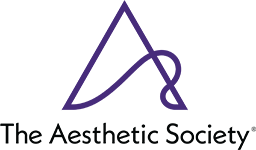
Fellow of the American Academy of Facial Plastic and Reconstructive Surgery (AAFPRS) or a similar organization such as the American Society of Plastic Surgeons (ASPS).

Official member of the International Society of Plastic and Aesthetic Surgeons
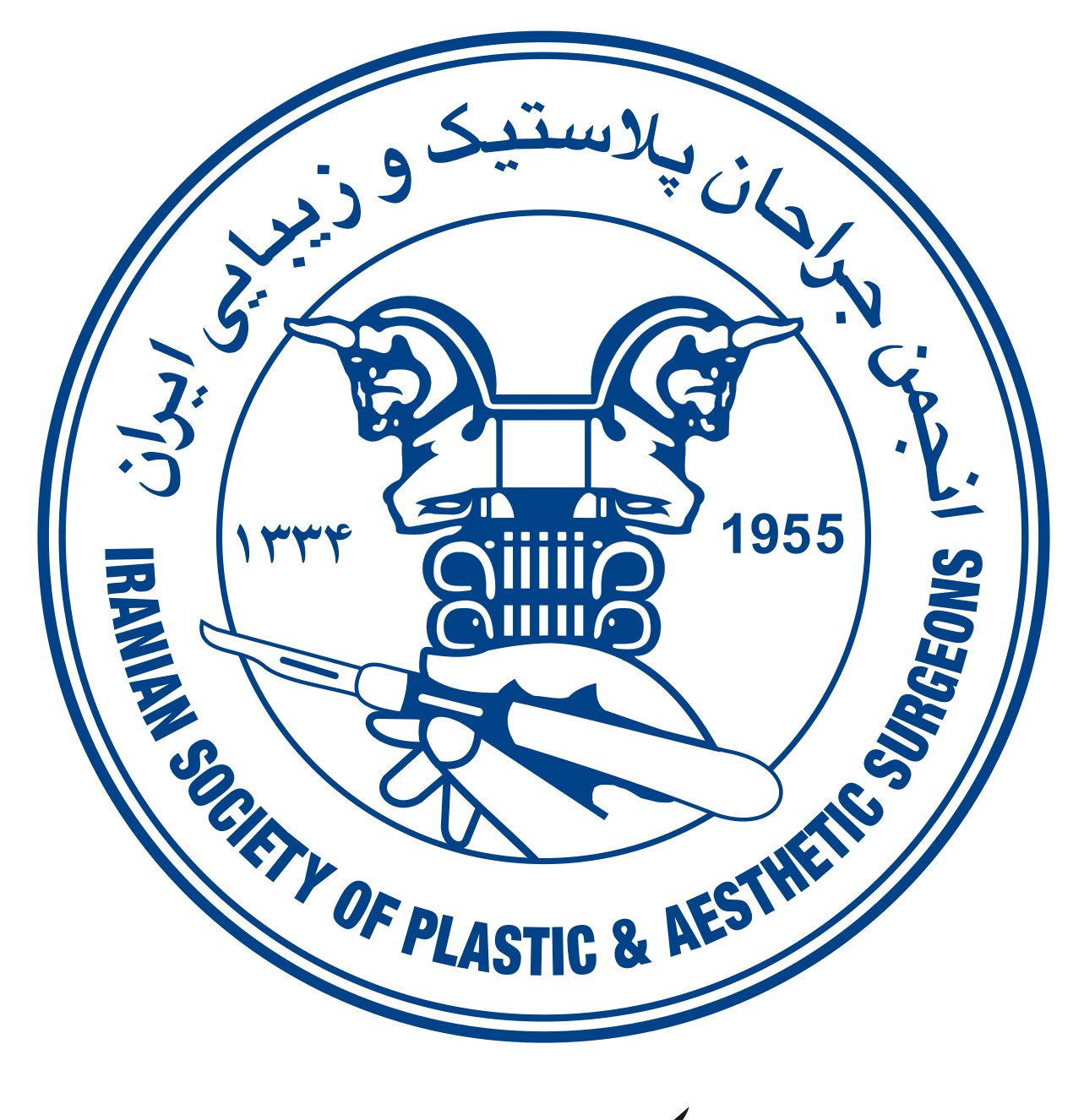
Official member of the Iranian Association of Plastic and Reconstructive Surgeons
FAQs
Who are suitable candidates for genioplasty?
Individuals over 18 years of age with good physical health who are dissatisfied with their chin shape and do not have jaw problems.
Is genioplasty performed with a prosthesis?
Yes, in cases of receding or small chins, silicone or biological prostheses are used to increase volume.
How long does chin surgery take?
It usually takes between 1 and 2 hours, and it varies depending on the type of surgery.
Does genioplasty hurt?
There is mild to moderate pain that is controlled by medication and usually subsides after a few days.
What is the difference between genioplasty and jaw surgery?
Genioplasty focuses on the aesthetics of the chin, while jaw surgery is performed to correct functional problems of the jaws.
What is the recovery period for genioplasty?
It usually takes 7 to 14 days, but swelling and bruising may remain for several weeks.

